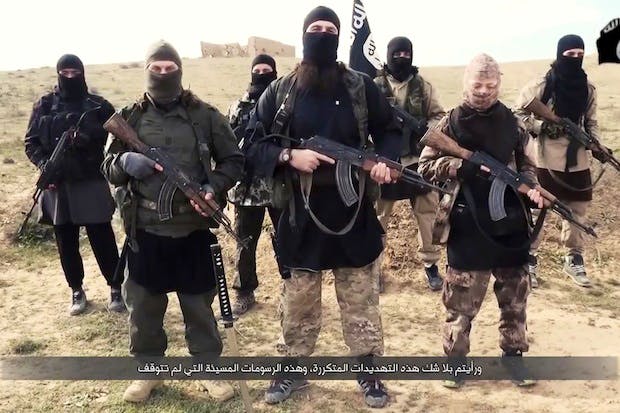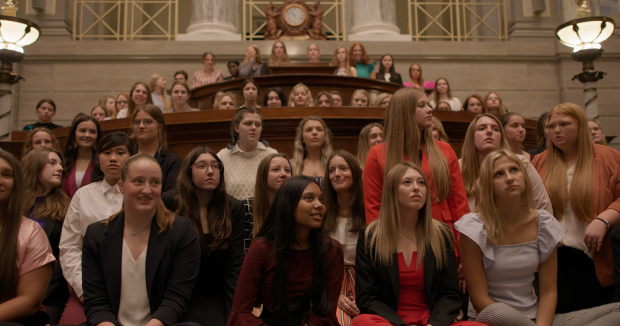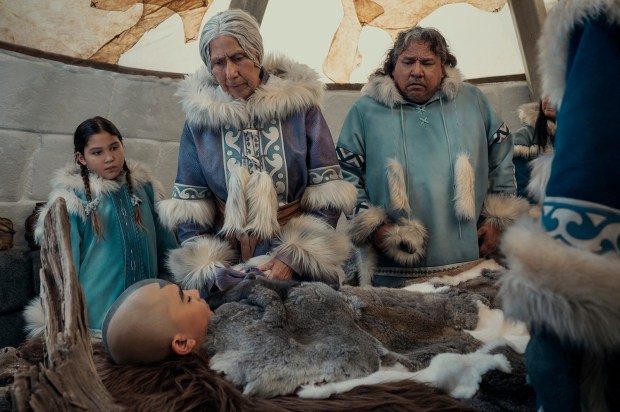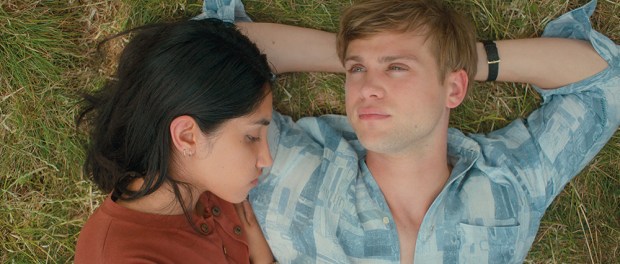So you’ve just popped out of town for the day on an errand. And when you get back, everyone has gone. Your wife, your kids, your nephews and nieces, your friends, your customers: they’ve all been kidnapped and dragged off to a place so barbarically horrible that really they’d be better off dead.
Your daughter, for example. If she’s nine or over then she’s considered fair game. She’ll be sold as a slave in the market to the highest bidder — as ever, there’s a premium for blonde hair or blue eyes— after which her new owner can use her as she wishes.
The very least she can expect is to have to spend her every day in the most restrictive clothing anywhere in the Muslim world. Her hands must be hidden by black gloves, her eyes invisible behind three veils. On those rare occasions when she is allowed outside, she must stumble as if half blind. If she accidentally breaks these rules she’ll be beaten; if she raises her voice she’ll be beaten; if she disobeys an order she’ll be beaten — usually by the al-Khansaa Brigade, a special female police group of brutal enforcers, mostly foreign recruits determined to prove their loyalty by being extra zealous.
Really, though, these may be the least of her worries. One 18-year-old escapee reports what happened when she was bought by a self-styled ‘sheikh’: first, her owner raped her; then his six bodyguards — through the night till morning (‘they were not raping me in a gentle way, but with force and fast movement, without care’); then, the driver gave her to 12 men. ‘They did everything to me. I’m still in pain.’
Even now that this (relatively) lucky girl is back safe with her family, the stink of those men is still with her and no matter how hard she tries she knows she’ll never get rid of it. She now cleans her teeth ten times a day (the first thing her owner did was dip his toe in honey and shove it in her mouth) but of course it makes no difference.
Yes, of course, we most of us now have a rough idea of the terrible things that are happening in Isis-held territory in Syria and Iraq. But up until now it has been tempting to inure oneself to the full horror with the bromide that these are people a long way off about whom we know little.
Not any more. Next Wednesday (15 July), Channel 4 airs a documentary in its Dispatches slot so important it ought to rank with John Pilger’s exposés of Cambodia’s Killing Fields or even the footage of British troops liberating Belsen. Escape From Isis uses secret footage — filmed by extremely brave people who would have been killed if discovered — to show you in unsparing detail what it’s like behind the Black Flag curtain: everything from the small talk of Islamic State fighters as they jauntily discuss what they’re going to do with their Yazidi captives to the dull thump heavy rocks make as they hit the flesh of a woman being stoned to death by a group of religious zealots led by her own father. It’s ugly, it’s almost unbearable to watch and it’s essential viewing.
One of the questions most often asked about the Holocaust is: why didn’t the Allies do something to stop it sooner? I imagine the time will come when we give ourselves a similar beating-up over our inertia in dealing with Islamic State. (‘So the Prime Minister wrote to the BBC urging it to call them by a different name. And that was it?!’)
I remember when the Prime Minister was trying, unsuccessfully, to co-ordinate military action against the Assad government, one of the things he urged MPs to do before they voted was to watch a film he’d seen showing the atrocities Assad’s supporters had committed. This, it struck me at the time, as it does even more so now, was an hysterical and irresponsible suggestion. Important decisions regarding military action should not be decided in a mood of heightened emotion. The same applies to this Dispatches documentary.
It is not an argument for or against anything. It merely shows you what is. I’ve made it sound ghastly but what makes it bearable, uplifting even, is the extraordinary story it tells of the rescue operations that have brought at least some of these captured Yazidis back to the bosom of their tearful families. Watch and you will share their joy. This is TV at its most unmissable.
Got something to add? Join the discussion and comment below.
Get 10 issues for just $10
Subscribe to The Spectator Australia today for the next 10 magazine issues, plus full online access, for just $10.















Comments
Don't miss out
Join the conversation with other Spectator Australia readers. Subscribe to leave a comment.
SUBSCRIBEAlready a subscriber? Log in